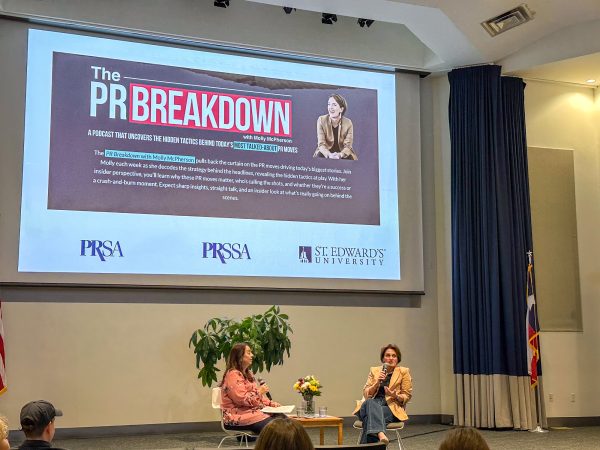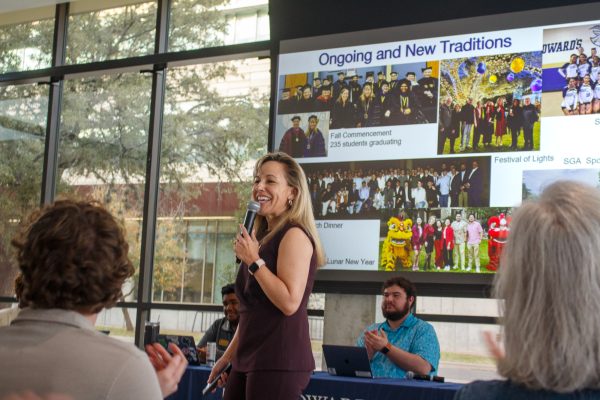University offers new minors in digital marketing, physics, social welfare
Minors in digital marketing, physics and social welfare became available starting this semester.
These minors underwent an approval process that passed through departments such as the university curriculum committee and the Board of Trustees before ultimately becoming part of the curriculum.
At least two students have declared a minor in digital marketing said Marketing, Entrepreneurship and Digital Media Management Chair Debra Zahay-Blat. An additional three students are currently pursuing the physics minor.
With topics ranging from principles of marketing to social media marketing, the digital marketing minor includes 18 required credit hours and a three-hour elective, totaling to 21 credit hours. A few courses for the minor are cross-listed with courses in the digital media management major, as well as the entrepreneurship major. New faculty members Juli James and Wesley Pollitte teach courses under the digital marketing minor.
“We knew that we had to upgrade the curriculum and get people the skills and tools that they needed to be successful in the marketplace [that] employers were looking for,” Zahay-Blatz said. “The big technologies we teach are search, social media, mobile, website design and optimization and email.”
The minor also incorporates certifications in technologies such as Hootsuite and Hubspot Inbound, satisfying the analytical component to the learning curriculum. Digital marketing is useful for humanities majors, such as communications and English majors.
Junior Abril Hernandez has taken courses under the digital marketing minor and intends to enroll. Hernandez utilized blogging skills she learned from her digital marketing classes and applied them to her internship at the Thinkery this past summer.
“My supervisors were really impressed that I already had these skills even though they thought they were going to teach them to me during the internship,” Hernandez said. “Since I already had an advantage, I could easily apply them and maybe improve them a bit more.”
The School of Natural Sciences requires 18 credit hours for the physics minor. Students also have the opportunity to take courses at Washington University at St. Louis and the University of Texas at Austin.
The Washington courses take place during a January term. Online courses under a partnership with UT allow St. Edward’s students minoring in physics to take upper level courses under the online certificate program known as hands-on nanotechnologies.
“When you look at the different departments that we have and what’s missing, in a sense, having more physics helps complement the other departments.” said visiting Assistant Professor of Science Paul Walter. “Students that are interested in any of the sciences can come here to St. Edward’s and know they can pursue physics as well.”






